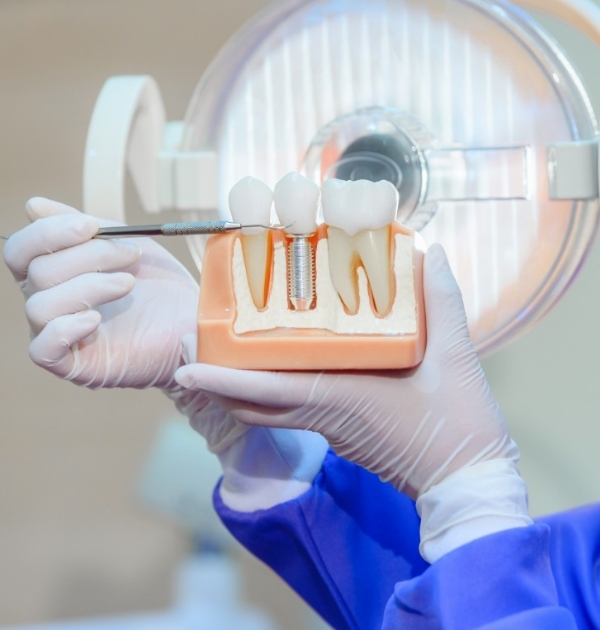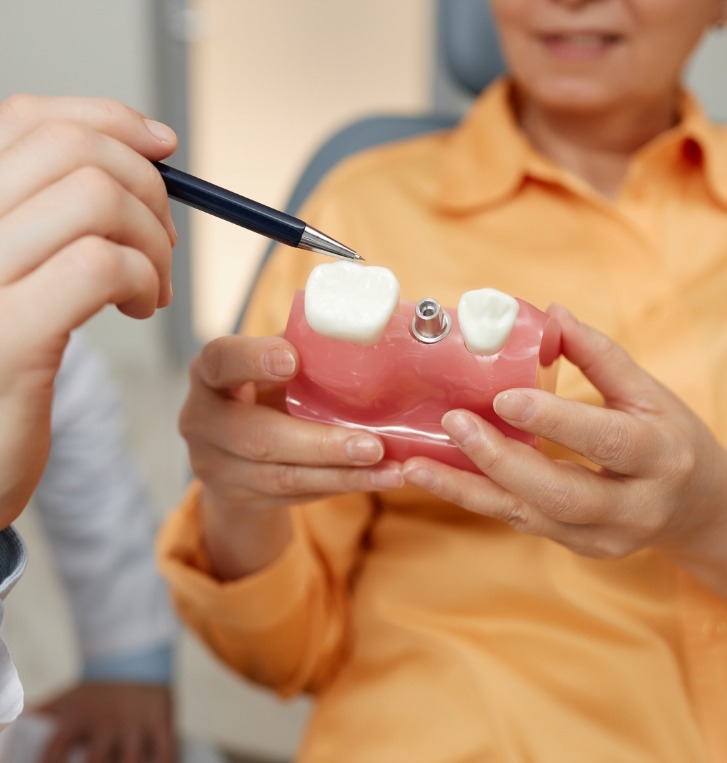Dental Implant Failure & Salvage – Hillsboro, OR
What to Do If You Have Loose Implants

Did you know that over 95% of dental implant cases are successful? While this statistic illustrates how reliable the treatment is for creating lasting new smiles, it also means that there’s a 5% failure rate. It’s very important to be aware of how dental implant failure can happen as well as what can be done about it. Call us immediately if your dental implants ever become loose or damaged; our experts at Wolfe Dental Hillsboro can help you find a way to restore your oral health and save your new grin with dental implant salvage in Hillsboro.
Why Choose Wolfe Dental Hillsboro for Dental Implant Salvage?
- Complete Implant Services Under One Roof
- Advanced Diagnostic Technology
- Highly Experienced Dental Experts
Why Do Dental Implants Fail?

Most of the time, dental implant failure is due to peri-implantitis, which is a type of infection that occurs when bacteria attack the tissue around the implant post. When peri-implantitis is left untreated, the gums and jawbone will start to break down; eventually, they may no longer be capable of supporting dental implant posts.
It’s also possible for implants to fail if osseointegration never takes place. Osseointegration is the natural process where the implants bond with the surrounding tissue, effectively fusing with the jawbone. There are several reasons why osseointegration might fail, including trauma, issues with the body’s natural healing capabilities, and exposing the implants to an excessive amount of pressure.
Symptoms of Failed Dental Implants

Failure can either occur shortly after dental implant surgery or long after osseointegration, but either way, you’re likely to notice the following symptoms:
- Unusual or severe pain around the implant post.
- An implant post that feels loose.
- Bleeding, swelling, pus, and other warning signs of infection.
- Having trouble chewing with your dental implant post.
Note that there can be multiple causes for the above symptoms. For example, if your implant feels loose, sometimes it’s a problem with the restoration and not the actual implant post. Nevertheless, if you have any reason to think that your implant might be failing, you should call our office right away.
How Dental Implant Salvage Works

The first step is to examine your mouth and learn more about your symptoms. After narrowing down the underlying problem, we can discuss possible treatment options. For example, if there’s an infection around the implant post, we may recommend a deep dental cleaning or antibiotics. In some cases, we may be able to address the problem and get your oral health back on track while leaving your implants in place.
In cases where severe damage has already occurred, we might need to remove your dental implant entirely. But don’t worry; after any oral health issues have been dealt with, it’s often possible to place a new dental implant.
